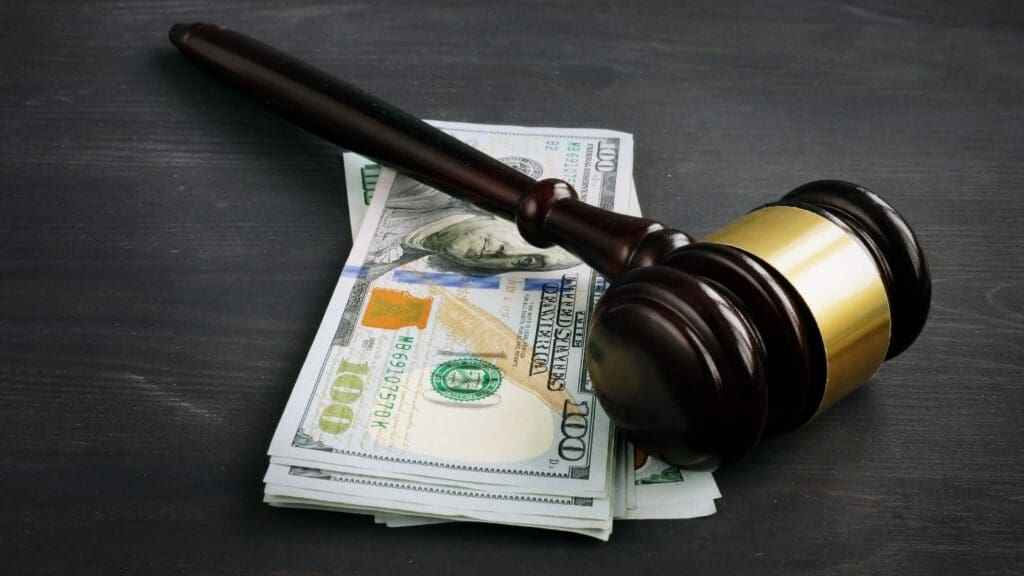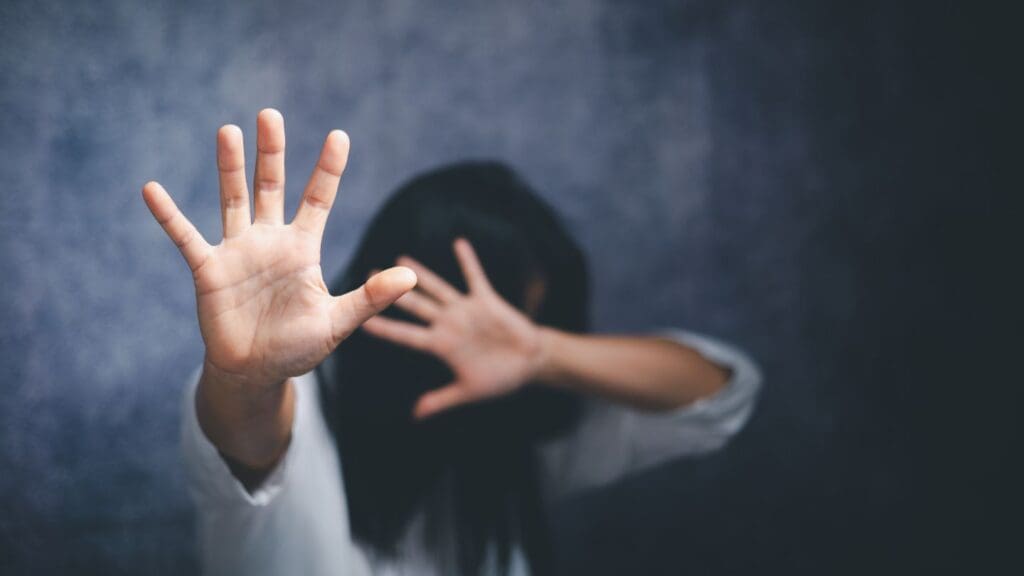If you have a domestic violence charge or domestic violence convictions, can you own a gun under firearm prohibition laws? The answer is generally no. Both federal and state laws restrict firearm possession for those with such convictions. This guide explores these laws, their differences, the impact of protective orders, penalties for violations, and how to possibly restore gun rights.
Key Takeaways
- Federal laws impose strict firearm restrictions on individuals convicted of domestic violence offenses, including those with a misdemeanor domestic violence conviction, with severe penalties for violations.
- State regulations vary widely on firearm ownership for domestic violence offenders, necessitating an understanding of both federal and state laws.
- Restoring gun rights after a domestic violence conviction is complex and may involve expungement, pardons, and demonstrating rehabilitation, often requiring legal assistance.
Understanding Domestic Violence Offenses and Gun Rights
Domestic violence offenses can have a significant impact on an individual’s right to possess a firearm. Under federal law, a person convicted of a misdemeanor domestic violence offense is subject to firearm prohibition, meaning they are prohibited from possessing firearms or ammunition. This prohibition applies to both federal and state laws, and it is essential to understand the specific laws and regulations in your state.
In Florida, for example, a person convicted of a domestic violence offense will lose their right to possess a firearm. This includes both misdemeanor and felony convictions. Additionally, a person who has had a domestic violence injunction issued against them may also be prohibited from possessing firearms. Under the Federal Gun Control Act, this prohibition extends to individuals convicted of domestic violence offenses against an intimate partner.
It is crucial to note that domestic violence offenses can include a range of behaviors, such as physical, emotional, and financial abuse. If you have been accused of domestic violence, it is essential to seek the advice of a qualified attorney who can help you understand your rights and options.
Federal Laws on Gun Ownership for Domestic Violence Offenders

Federal legislation imposes stringent constraints on individuals convicted of domestic violence with regard to firearms. Specifically, the Lautenberg Amendment prohibits all those who have been found guilty of misdemeanor domestic violence offenses from owning or carrying guns. This restriction applies universally, even affecting law enforcement officers and thus preventing them from bearing arms if they hold such a conviction.
These laws apply regardless of whether the victim is a current or former spouse, highlighting the broad scope of the regulations.
The 1968 Federal Gun Control Act expands these prohibitions to include anyone convicted of felony crimes as well as persons subject to a protective order related to domestic violence. The act encompasses convictions at both federal and state levels that involve using physical force or employing a deadly weapon against an intimate partner, underscoring the rigorous approach toward curtailing gun rights among domestic violence offenders. Additionally, the act includes provisions for individuals under a restraining order, further tightening the restrictions on firearm possession.
The consequence for someone convicted under misdemeanor family abuse charges is an indefinite suspension of their right to possess any firearm. Federal agencies diligently enforce these measures, making it crucial for those with such convictions to understand their legal status.
Federal statutes significantly hinder those charged with violent family acts from regaining firearm ownership rights. Understanding these complex regulations is essential when evaluating possible paths to re-establish eligibility for firearm possession following a conviction.
State-Specific Regulations and Variations
While federal laws set baseline standards, state regulations on firearm possession for domestic violence offenders differ significantly. This creates a complex framework requiring a thorough understanding of both local and national statutes.
State laws vary in their restrictions on individuals with domestic violence convictions. For example, in California, those convicted must immediately relinquish their firearms and face a decade-long ban for certain misdemeanors. In Florida, individuals accused but not yet convicted may have their concealed carry privileges temporarily suspended.
Some states mandate law enforcement to seize firearms at domestic incident scenes, and there are legal mechanisms to retrieve firearms from individuals with restraining orders. These variations highlight the importance of understanding both federal and state laws regarding firearm ownership after domestic violence charges or convictions.
What Counts as Possession of a Firearm?
Possession of a firearm can be either actual or constructive. Actual possession refers to physically possessing a firearm, while constructive possession means knowingly having the intention and power to exercise control and dominion over a firearm or the area in which the firearm is located.
In the context of domestic violence offenses, possession of a firearm can be a critical issue. If you have been convicted of a domestic violence offense, you may be prohibited from possessing firearms or ammunition. This prohibition can be enforced through a domestic violence injunction or a court order.
Read more: Is It Illegal To Deface a Firearm?
It is essential to understand that possession of a firearm can be proven through various means, including eyewitness testimony, physical evidence, and circumstantial evidence. If you have been accused of possessing a firearm in violation of a domestic violence injunction or court order, it is crucial to seek the advice of a qualified attorney who can help you understand your rights and options.
The Impact of Domestic Violence Protective Orders on Gun Rights

Protective orders in domestic violence cases significantly affect an individual’s right to possess firearms. These orders often require individuals to surrender their firearms for the duration of the order.
Individuals subject to such orders must promptly relinquish their firearms, as mandated by law. For instance, in Florida, individuals under a domestic violence protective order must surrender their firearms and ammunition to local law enforcement within 24 hours to prevent further violence and protect victims.
Law enforcement agencies are responsible for ensuring compliance with these firearm surrender mandates. Non-compliance can result in criminal charges and violations of the restraining order terms. Understanding the impact of protective orders on gun rights is crucial for those involved in related legal proceedings.
Surrendering Firearms After a Domestic Violence Conviction
If convicted of a domestic violence offense, you may be required to surrender your firearms as a condition of probation, parole, or a domestic violence injunction.
In Florida, for instance, convicted individuals must surrender their firearms to law enforcement within 24 hours of receiving a domestic violence injunction. Failure to comply can result in contempt of court charges.
Surrendering firearms can be complex, so it’s crucial to seek legal advice. An attorney can guide you through the process and ensure you comply with all relevant laws.
You may also need to provide proof of compliance, such as documentation showing you sold or transferred your firearms to a licensed dealer or stored them with a third party.
Understanding the laws and regulations surrounding domestic violence offenses and gun rights is essential. If accused or convicted of domestic violence, consult a qualified attorney to navigate the legal landscape and protect your rights.
Consequences of Gun Ownership as a Prohibited Person
Understanding the severe consequences of owning a gun after a domestic violence conviction is crucial. Federal law, through the Gun Control Act (GCA) and the Lautenberg Amendment, explicitly bars individuals convicted of misdemeanor domestic violence offenses from possessing firearms.
Violating these laws can result in severe penalties, including up to ten years of imprisonment, hefty fines, or both. The repercussions extend beyond federal charges, with state laws also imposing additional penalties.
Being caught with a firearm as a prohibited person can complicate future legal proceedings, affect employment opportunities, and further restrict civil liberties. The associated stigma can impact personal relationships and community standing.
Adhering to legal restrictions and seeking professional legal advice is essential for anyone with a domestic violence conviction. Consulting with a qualified attorney can help you navigate the complexities of gun ownership laws and explore possible avenues for restoring your gun rights.
Penalties for Violating Firearm Prohibitions

Violating firearm prohibitions after a domestic violence conviction can lead to severe penalties under federal law, including up to 10 years in prison and substantial fines.
These penalties apply regardless of whether the victim is a current or former spouse.
State laws also impose strict penalties. For example, in Florida, violating a restraining order related to firearms can result in criminal charges, misdemeanors, and fines up to $1,000. Failing to surrender firearms as required by protective orders can also lead to legal consequences.
The severity of punishment depends on factors like the nature of the offense and whether it is a first-time or repeat violation. Providing false information on ATF Form 4473 can result in third-degree felony charges and up to five years in prison, emphasizing the importance of adhering to firearm restrictions and completing required documentation truthfully.
Restoration of Gun Rights After a Domestic Violence Conviction

Restoring firearm rights after a domestic violence conviction is complex. Federal law imposes a perpetual prohibition, but certain state-specific methods may allow reinstatement.
Individuals with domestic violence convictions face significant hurdles in regaining their firearm rights.
If a conviction is annulled, expunged, pardoned, or sealed, firearm rights might be restored. This usually requires legal counsel and a formal request to the court.
Expungement and Its Limitations
Expunging a domestic violence conviction can help regain gun rights, but federal law often overrides state provisions. Even with expungement, federal restrictions may still apply.
Expungement involves submitting a request to the court with proof of rehabilitation and adherence to sentencing conditions. Understanding the interplay between state and federal laws is crucial.
Pardon Process
A pardon can potentially restore gun rights. This process requires strong evidence and often involves an official hearing. Success depends on the strength of the petitioner’s case.
Rehabilitation and Evidence of Character
Demonstrating rehabilitation is essential for regaining gun rights. This includes completing counseling programs and obtaining character references from respected figures.
Evidence of positive relationships with a current or former spouse can support claims of rehabilitation.
Solid evidence of rehabilitation can facilitate the legal process and convince the court of the individual’s reformed character.
How to Navigate Legal Challenges with Professional Help
Dealing with the legal challenges associated with firearm possession following a conviction for domestic violence necessitates expert assistance. Individuals with domestic violence convictions should seek expert legal advice to navigate the complexities of restoring their gun rights. Obtaining knowledgeable legal advice is vital to comprehend the complexities involved in restoring gun rights while adhering to all applicable state and federal regulations.
Securing an accomplished criminal defense lawyer is key. Legal practitioners who concentrate on cases of firearm possession are equipped to evaluate potential avenues and craft a strong defense approach, offering direction through each step of the legal process, from submitting the necessary paperwork to advocating in court.
The advantages of having specialized legal support cannot be overstated. Attorneys with expertise in this field offer essential aid, steering clients through the maze of judicial proceedings and enhancing their chances of reaching a favorable resolution.
Summary
Grasping the complexities involved in how domestic violence charges affect gun rights is crucial yet intricate. Both federal and state laws enforce strict prohibitions on gun ownership for individuals convicted of domestic violence, with harsh penalties if these restrictions are breached. Understanding the impact of domestic violence convictions on gun rights is crucial for anyone facing such charges. There are legal avenues to reclaim gun rights that require meticulous attention and often necessitate expert legal guidance.
To sum up, securing professional legal assistance is vital for anyone grappling with the impact of domestic violence allegations on their firearm privileges. An experienced criminal defense lawyer can offer critical advice and advocacy to successfully steer through this complicated area of law. Bear in mind that informed decision-making and appropriate legal action are pivotal for protecting your rights and shaping your future amidst such challenges.
Get Professional Legal Assistance
If you are dealing with the legal challenges associated with firearm possession following a domestic violence conviction, it is essential to seek expert legal advice. Contact Lynne Torgerson, an experienced and professional criminal lawyer in Minneapolis, to help you understand the legal terms, answer your questions, and help you win your case. Reach out now to get the support and guidance you deserve.



